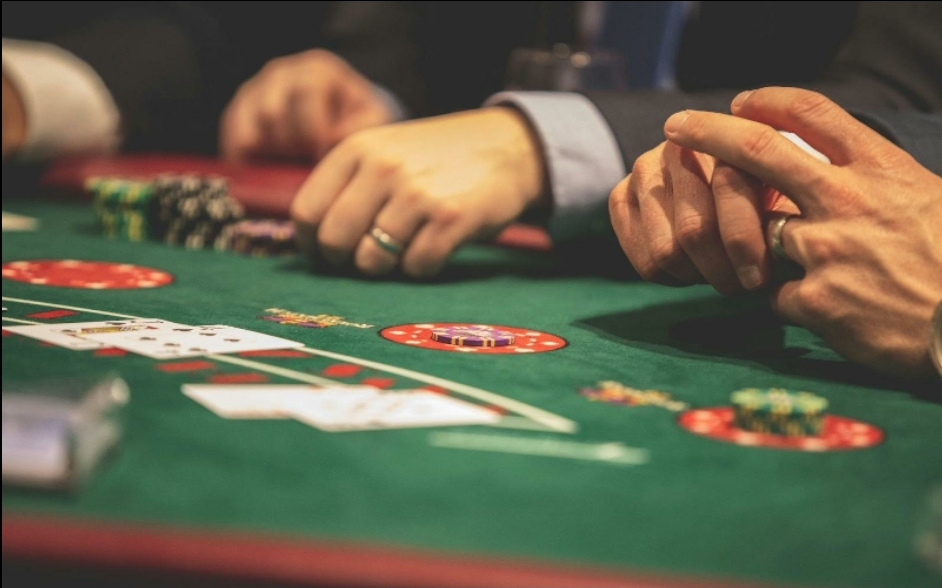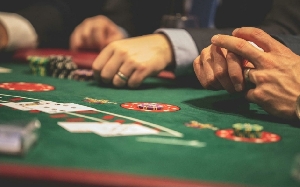This post was published by a guest. The views expressed are those of the author and do not necessarily reflect the views of Scified.com.
In the unpredictable world of gambling, not every decision is driven by logic, skill, or probability. Some players trust something beyond the data, a system they cannot explain but feel deeply. This mindset, often described as a “casino covenant,” is not about fate or faith, but about trusting timing, instinct, and unseen patterns. So what does it really mean to bet on divine intervention in a modern casino setting?

Source: Pexels
Intuition Versus Probability, When Logic Isn’t Enough
Most casinos operate on strict mathematical systems, random number generators, and house edge calculations. Still, many players rely on instinct. They follow routines, feel out the energy of the room, and wait for the moment that just “feels right” to bet.
This behavior reflects something deeper than superstition. Psychologists call it pattern recognition, the tendency to assign meaning to sequences or coincidences. Gamblers may avoid certain numbers or return to a machine they believe is “due,” not because they ignore probability, but because they believe they can read the flow.
In this context, betting on divine intervention simply means trusting one's intuition, even when the numbers suggest otherwise.
The Casino Covenant, An Unspoken Deal With Chance
The term “casino covenant” captures a player's personal agreement with the randomness of gambling. It is not written or formal, but it influences behavior. Some gamblers set personal rules they never break, like always betting in multiples of five, leaving after three losses, or only playing during certain hours.
These personal systems create a sense of structure. They do not alter the outcome, but they give players a sense of control in an unpredictable environment. The “covenant” becomes a framework that helps manage emotions and expectations.
In this sense, divine intervention is not about belief in magic, but belief in rhythm, momentum, and the power of consistency.
Betting on Moments, Not Just Odds
Even in digital casinos, players talk about “hot streaks,” “cold runs,” or the feeling that the next spin is the one. While the odds remain fixed, human perception does not. Players interpret outcomes through emotion, rhythm, and momentum.
Professional players often refer to flow, the sense of being in sync with the game. Whether it is poker, slots, or roulette, many rely on timing as much as tactics. The belief in divine intervention, in this case, is belief in a moment when everything aligns.
Systems Over Superstition
Betting on divine intervention is not the same as gambling blindly. For many players, it reflects trust in a personal system, developed through experience, observation, and trial and error. These approaches may not follow standard logic, but they introduce structure in an environment governed by randomness.
Often, this mindset begins before a single bet is placed. Understanding where and how to play is part of the process, especially with the growing presence of alternative models like sweepstakes casinos. As these platforms continue gaining attention, many players rely on resources to evaluate which sites offer fair gameplay, bonus clarity, or more engaging formats. (source:https://www.promoguy.us/sportsbook/sweepstakes-casino/new/)
In practice, systems can involve setting time limits, sticking to a budget, or recognizing when momentum shifts. This internal logic, while subjective, plays a major role in how players manage risk and make decisions.
Here, the word “divine” does not imply mysticism. It reflects the value placed on timing, emotional control, and self-awareness, factors that often matter just as much as probability itself.
When the Numbers Are Not Enough
The idea of a “casino covenant” is not about mysticism, it is about mindset. It is a player’s internal rulebook, shaped by intuition, emotional control, and respect for the game’s volatility. Betting on divine intervention, in this case, means trusting preparation, timing, and feel, not just math.
While statistics govern the odds, human decisions shape the outcome. And in those moments of risk, when the stakes rise and reason blurs, many players lean not on numbers, but on instinct. In that sense, the covenant is not with the casino, but with oneself, and sometimes, that is the smartest bet of all.
This balance between numbers and instinct mirrors broader decision-making patterns in high-stakes environments. As highlighted by the Harvard Business Review, people often overestimate the accuracy of their purely analytical decisions, especially under pressure.
The most effective decision-makers are those who combine data with experience, intuition, and timing. These are the same qualities that guide many seasoned players, not because they reject logic, but because they understand its limits in unpredictable settings.

Sci-Fi Conventions Reveal Exclusive Behind-The-Scenes Content
Fans were buzzing all week about San Diego Comic‑Con 2025 and everything it revealed. From trailers to sneak previews and creator chats, the excitem...

The Economics of Credit-Based Dating: Estimating Real Costs Before They Estimate You
Credit-based dating platforms can feel deceptively light at the door: sign up, browse profiles, get messages quickly, and only then discover that mean...

How Sci‑Fi Culture Inspired Future Tech Careers and Online Work in 2026
Explore how science fiction influences technology careers and online work in 2026, linking future tech inspiration with real opportunities and remote talent platforms.

Benefits of Using the Mobile Client: An Analysis of the 1x Casino App Download
Playing casino games on your phone should be quick, safe, and actually enjoyable (not a chore). The 1x Casino mobile client aims to package your accou...

CryptoEasily launches stable-yield cloud mining contracts, creating a new way for BTC and XRP holders to earn $7,700 per day.
As the price of Bitcoin and the value of XRP continue to decline, with Bitcoin falling below $75,000 and XRP dropping to around $1.50, market sentimen...


